Autumn internationals: Promising end to Wales' new beginning
- Published
- comments
Well, all's well that ends well.
Wales and Warren Gatland's autumn of trials, tribulations and a host of injuries has ended with a third consecutive home win against South Africa.
That comes after they were beaten by Australia and New Zealand while experimenting with selection and attacking formations; disrupted by injuries and English-based players' club commitments; and unimpressive in beating Georgia.
What have the autumn Tests taught us about Wales and their prospects looking ahead to the Six Nations, which they open at home against Scotland on Saturday, 3 February?
Dig the new breed
Gatland has made no secret of the fact Wales have had one eye on the 2019 World Cup.
And with that in mind, he can point at impressive performances by wing Hallam Amos, flanker Josh Navidi and Gloucester fly-half Owen Williams - who plays inside centre when he pulls on the red shirt.
In the case of Scott Williams - a surprise omission from his initial squad - we've seen a player determined to prove Gatland wrong after his recall following the injury to Jonathan Davies' ankle against Australia.
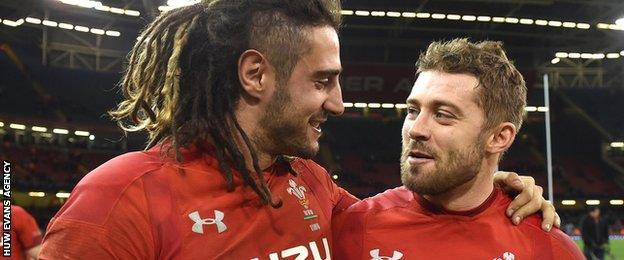
Old and new: Josh Navidi impressed for Wales while Leigh Halfpenny nailed all his kicks against South Africa
Williams' tries against New Zealand and South Africa mean he is only the fourth Wales player to score tries against all three of the southern hemisphere superpowers, joining Shane Williams, Alun Wyn Jones and Alex Cuthbert.
Other players who would normally be considered on the fringe who have impressed are lock Cory Hill and hookers Elliott Dee and Kristian Dacey.
"There's a lot we can get out of this campaign in terms of developing strength in depth in the squad," said Gatland.
"Josh Navidi has had a great autumn.
"We gave another nine an opportunity [Scarlets' Aled Davies], and a new 12. I think we can take a huge amount of positives out of that."
A question of style
The apparent change of style from the direct approach categorised by critics as "Warrenball" has been widely welcomed.
The selection of a ball-playing 12 in the shape of Williams against Australia and New Zealand is hardly re-inventing the wheel, though the way some have talked about the change it's as if Michael Lynagh never lined up alongside Mark Ella for Australia in 1984 or Mike Gibson alongside Barry John for the British and Irish Lions in 1971.
Remember, if Gavin Henson had not broken his arm against England then he might have been 12 at the 2011 World Cup.
Against South Africa, Wales used markedly different tactics and to great initial effect.
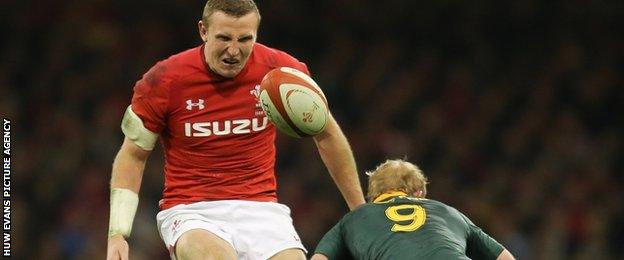
Hadleigh Parkes played 12 for Wales against South Africa, scoring two tries on his debut with a more direct style
Dan Biggar's variety of kicks caused chaos and produced two tries in the opening eight minutes.
Generally, Wales were more direct against the Springboks - a case of different strokes for different foes.
"It's about mixing things up - just about us being smart. You can't just keep playing and playing and playing at this level," said Gatland.
"You have to mix it up or teams will get front line on you and you end up running up your own backside.
"You have to turn teams around now and again and keep that variation.
"You have to play certain teams a certain way. This autumn we wanted to change things up and we are probably at the stage now of mixing and matching it a bit.
"I feel like we're in a good place and we've learned a lot in terms of different ways we're trying to play and good teams are able to do that."
Wales 2017 autumn Tests | |
|---|---|
Sat, 11 Nov | |
Sat, 18 Nov | |
Sat, 25 Nov | |
Sat, 2 Dec | |
A view from an opponent
New Zealand head coach Steve Hansen was coach of Wales for two years between 2002 and 2004.
He saw his team pull away from Wales in the later stages of their 33-18 win on 25 November, and gave his verdict on the new Wales way of playing.
"It's all there to see, isn't it?" he said
"They're using the ball a lot more, they're going to the middle of the park and looking to come back rather than go the same way all the time.
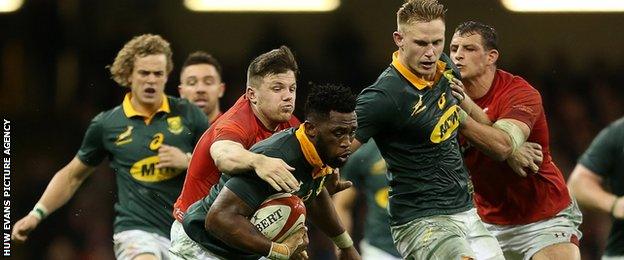
Steff Evans and Steven Shingler have been among the players given extended runs for Wales this autumn
"Someone said to me 'they've made a few mistakes' but when you play rugby a lot more fluently than you normally do then you're going to make mistakes and as a coach and as a fan you have to accept that.
"Because if you don't play and you kick the ball they're just going to run back at you anyway and you're going to end up defending a lot.
"They will see that they've got some light at the end of the tunnel where they're wanting to go and you've seen it with Scotland this autumn too.
"They are certainly developing their game and it's good for rugby I think."
What next?
Well, the Six Nations starts in February and in most bookies' eyes Wales are behind England, Ireland and a resurgent Scotland.
To get the cliche in early, it will depend which France turns up. Italy, meanwhile, were well beaten by a South African side that has been way under par.
Scotland were exhilarating in their loss to New Zealand and record win over the Wallabies.
Ireland massacred the Springboks and England won comfortably against Australia without looking anywhere near their best.
On the face of it, with Wales developing a new identity and unsure how many of the seven injured 2017 British and Irish Lions missing against South Africa they will have back by February, the bookies appear to have it right.
Gatland appears to like it that way.
"I think it will be one of the closest Six Nations we've had potentially for a long time. A lot of people [are] talking about other teams and from our point of view long may that continue," he said.
After finishing fifth last season, the only way is up - barring a shock at home against Italy.
- Published2 December 2017
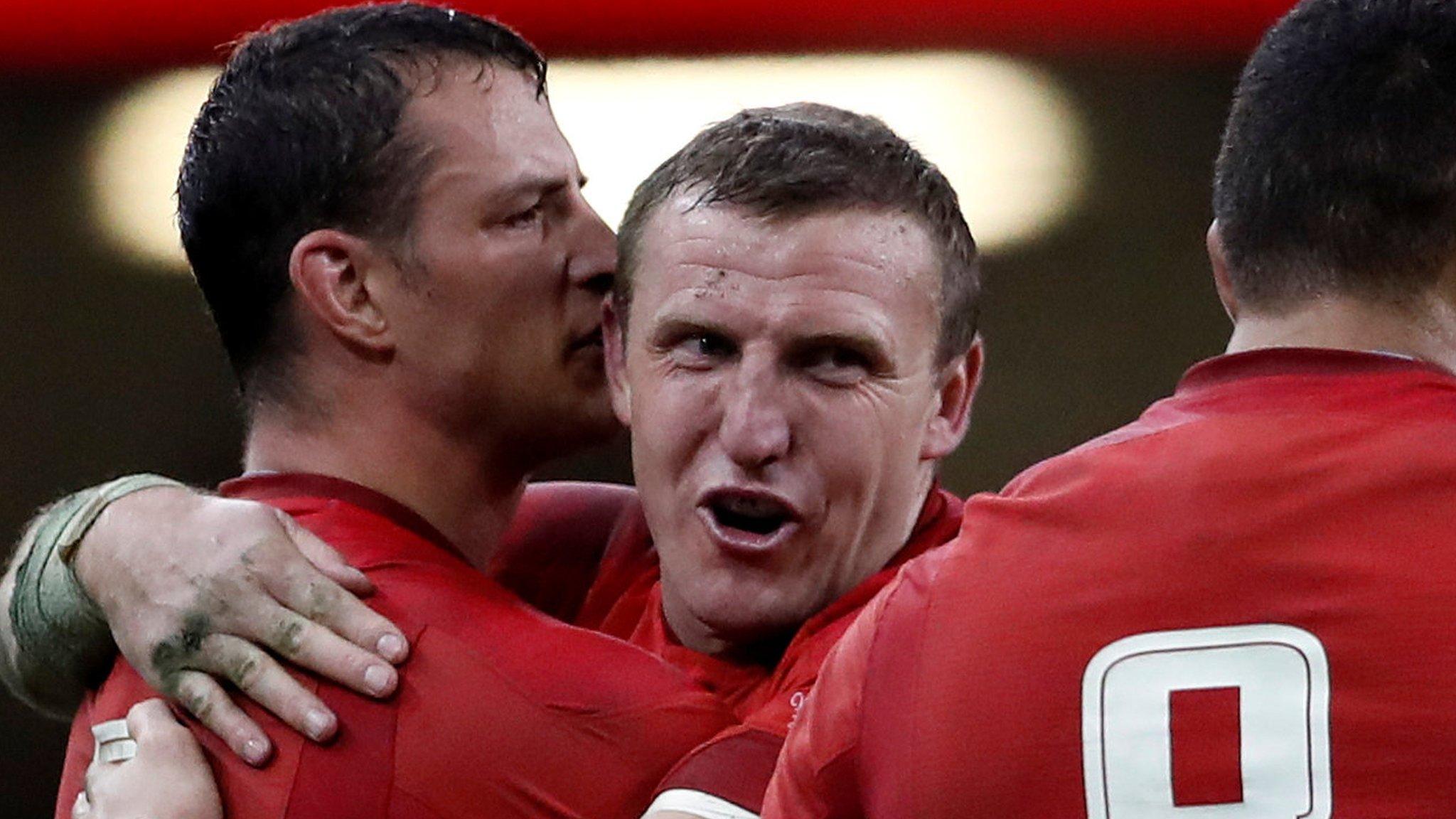
- Published27 November 2017
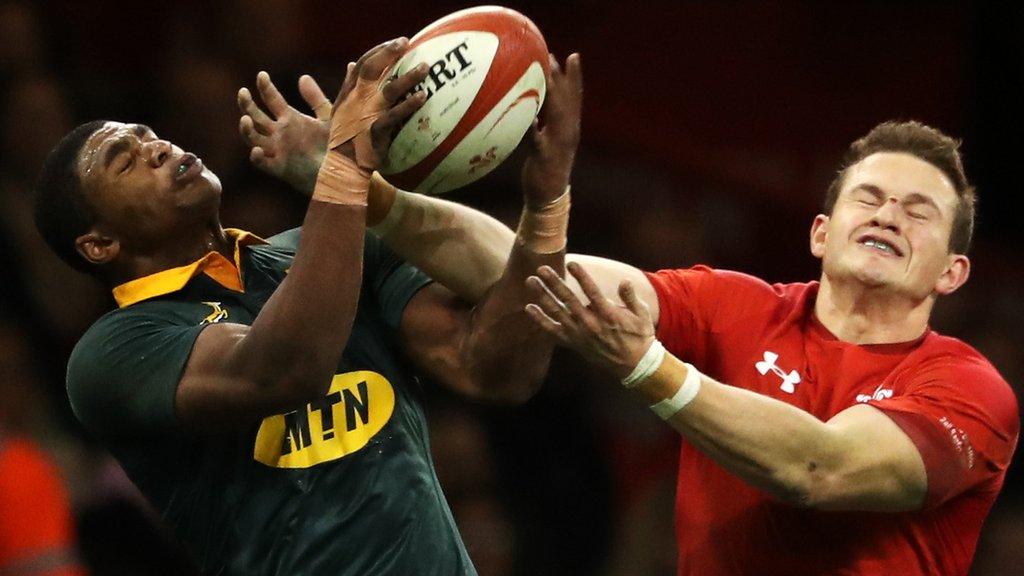
- Published25 November 2017
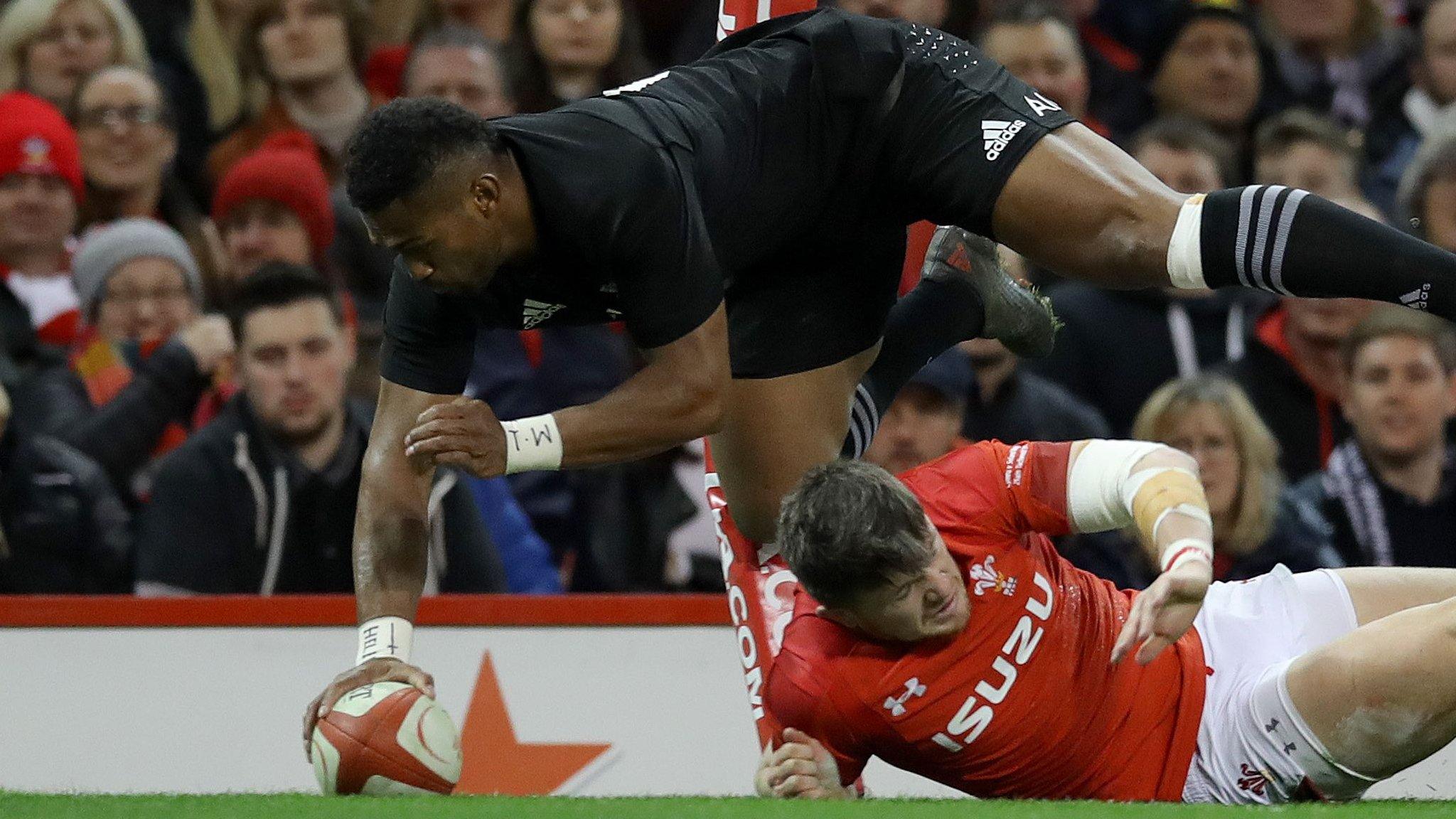
- Published15 February 2019
